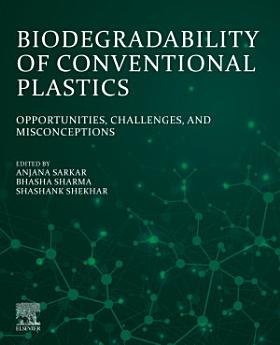Biodegradability of Conventional Plastics: Opportunities, Challenges, and Misconceptions
About this ebook
About the author
Anjana Sarkar, Head of Department and Professor, Department of Chemistry, Netaji Subhas University of Technology, Delhi, IndiaProf. Anjana Sarkar is currently Head of the Department of Chemistry at Netaji Subhas University of Technology. With 37 years of teaching and research experience at Netaji Subhas University of Technology, she has published various papers in national and international journals. Prof. Sarkar completed an AICTE sponsored R&D project on ‘Ternary Complexes of Transition Metal Ions with Novel Biomolecular like Kojic Acid & L-Amino acid: Synthesis & Study of Physicochemical Properties and their Bio-efficacy’, and has been awarded “Woman of the Year 1998 by the American Biographical Institute, North Carolina, USA.
Dr. Bhasha Sharma is an Assistant Professor in the Department of Chemistry, Shivaji College, University of Delhi, India. She received her BSc (2011) in Polymer Sciences from the University of Delhi, and completed her Ph.D. in Chemistry in 2019. Her research interests revolve around sustainable polymers for packaging applications, environmentally benign approaches for biodegradation of plastic wastes, fabrication of bionanocomposites, and finding strategies to ameliorate the electrochemical activity of biopolymers.
Shashank ShekharAssistant Professor, Department of Chemistry, Netaji Subhas University of Technology, Delhi, India Dr. Shashank Shekhar is currently an Assistant Professor at Netaji Subhas University of Technology and is also associated with the Quantum Research Centre of Excellence as Associate Director in the Department of Renewable Energy. He completed his PhD in Chemistry at the University of Delhi. Dr. Shekhar has been working on biopolymers and Schiff base metal complexes for the last 5 years and has published articles in reputed international journals.






